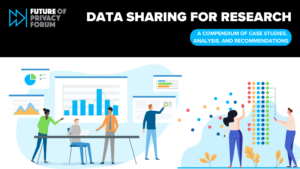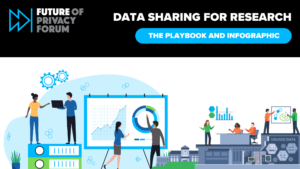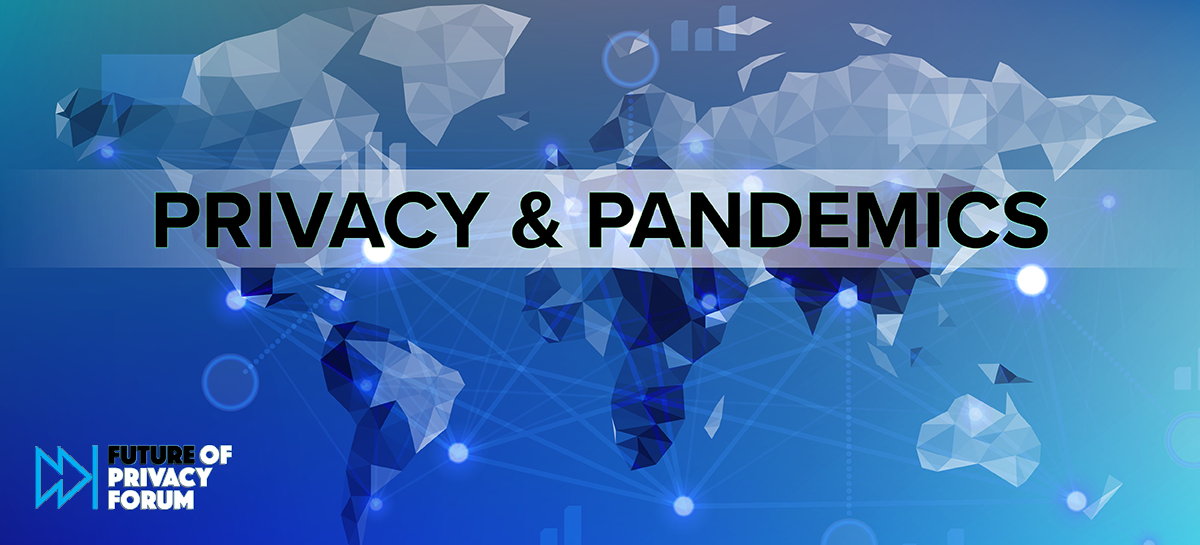Research often requires using sensitive data to answer important questions. The ethical collection and analysis of personal information can be challenging to do while still protecting the privacy of the implicated individuals, honoring informed consent, and complying with other legal obligations. The technology, policies, and ethical considerations for researchers are constantly shifting, sometimes making it difficult to keep up. That’s why FPF engages stakeholders across academia and industry to produce recommendations, best practices, and ethical review structures that promote responsible research. Our work is centered around streamlining, encouraging, and promoting responsible research that respects essential privacy and ethical considerations throughout the research lifecycle. FPF works with policymakers to develop legislative protections that support effective, responsible research with strong privacy safeguards, including hosting events that allow policymakers and regulators to engage directly with practitioners from academia, advocacy, and industry.
FPF also has an Ethics and Data in Research Working Group. This group receives late-breaking analysis of emerging legislation affecting research and data, meets to discuss the ethical and technological challenges of conducting research, and collaborates to create best practices to protect privacy, decrease risk, and increase data sharing for research, partnerships, and infrastructure. Learn more and join here.
Featured
A Look Back at the Role of Law and the Right To Privacy in LGBTQ+ History
By Katelyn Ringrose, Christopher Wolf Diversity Law Fellow at the Future of Privacy Forum, and Christopher Wood, Executive Director of LGBT Tech, with thanks to Connor Colson, FPF Policy Intern. LGBTQ+ rights are, and have always been, linked with privacy. Over the years, privacy-invasive laws, practices, and norms have been used to oppress LGBTQ+ individuals […]
Dr. Lauren Gardner, Creator of Johns Hopkins University’s COVID-19 Dashboard, and UC Berkeley Data Analytics Researcher Dr. Katherine Yelick to Keynote FPF Conference on Privacy & Pandemics
Workshop Explores the Value and Limits of Data and Technology in the Context of the COVID-19 Pandemic Today, the Future of Privacy Forum announced a pair of distinguished professors and researchers will be the keynote speakers for a two-day virtual workshop exploring the value and limits of data and technology in the context of a […]
Event Recap: Using Corporate Data for Research – Lessons from an Award-Winning Project
Last week, FPF hosted a virtual event honoring the winners of the first-ever FPF Award for Research Data Stewardship: University of California, Irvine Professor of Cognitive Sciences Mark Steyvers and Lumos Labs, represented by General Manager Bob Schafer. In addition to the awardees, the event featured Daniel L. Goroff, Vice President and Program Director at […]
FPF Submits Comments Regarding Data Protection & COVID-19 Ahead of National Committee on Vital and Health Statistics Hearing
Yesterday, FPF submitted comments to the National Committee on Vital and Health Statistics (NCVHS) ahead of a Virtual Hearing of the Subcommittee on Privacy, Confidentiality, and Security on September 14, 2020. The hearing will explore considerations for data collection and use during a public health emergency, in light of the deployment of new technologies for […]
Call for Position Statements on Responsible Uses of Technology and Health Data During Times of Crisis
Event Overview The Future of Privacy Forum, in collaboration with the National Science Foundation, Duke Sanford School of Public Policy, SFI ADAPT Research Centre, Dublin City University, and Intel Corporation presents Privacy & Pandemics: Responsible Uses of Technology and Health Data During Times of Crisis — An International Tech and Data Conference, including a two day […]
The European Commission Considers Amending the General Data Protection Regulation to Make Digital Age of Consent Consistent
The European Commission published a Communication on its mandated two-year evaluation of the General Data Protection Regulation (GDPR) on June 24, 2020 in which it discusses as a future policy development “the possible harmonisation of the age of children consent in relation to information society services.” Notably, harmonizing the age of consent for children across […]
FPF & BrightHive Release Playbook to Create Responsible Contact Tracing Initiatives, Address Privacy & Ethics Concerns
A new playbook from the Future of Privacy Forum (FPF) and BrightHive, Responsible Data Use Playbook for Digital Contact Tracing, provides a series of considerations to assist stakeholders in setting up a digital contact tracing initiative to track and manage the spread of COVID-19, while addressing privacy concerns raised by these technologies in an ethical, […]
New FPF Study: More Than 250 European Companies are Participating in Key EU-US Data Transfer Mechanism
Co-Authored by: Drew Medway & Jeremy Greenberg European Companies’ Participation in Privacy Shield Up Nearly 30% from the Past Year. EU-US Privacy Shield Remains Essential to Leading European Companies. From Major Employers such as Logitech and Siemens to Leading Technology Firms like Telefónica and SAP, European Companies Depend on the EU-US Agreement. The Privacy Shield […]
Supreme Court Rules that LGBTQ Employees Deserve Workplace Protections–More Progress is Needed to Combat Unfairness and Disparity
Authors: Katelyn Ringrose (Christopher Wolf Diversity Law Fellow) and Dr. Sara Jordan (Policy Counsel, Artificial Intelligence and Ethics) Today’s Supreme Court ruling in Bostock v. Clayton County—clarifying that Title VII of the Civil Rights Act bans employment discrimination on the basis of sexual orientation and gender identity—is a major victory in the fight for LGBTQ […]
TEN QUESTIONS ON AI RISK
Artificial intelligence and machine learning (AI/ML) generate significant value when used responsibly – and are the subject of growing investment for exactly these reasons. But AI/ML can also amplify organizations’ exposure to potential vulnerabilities, ranging from fairness and security issues to regulatory fines and reputational harm.














